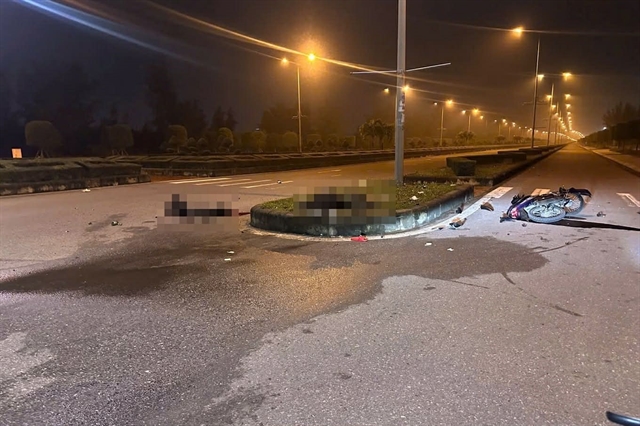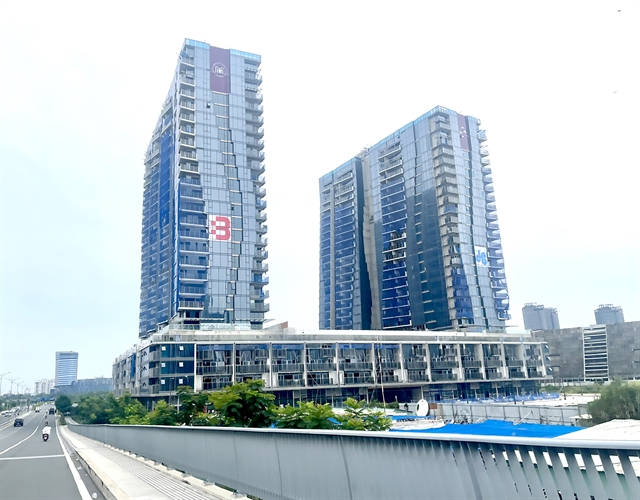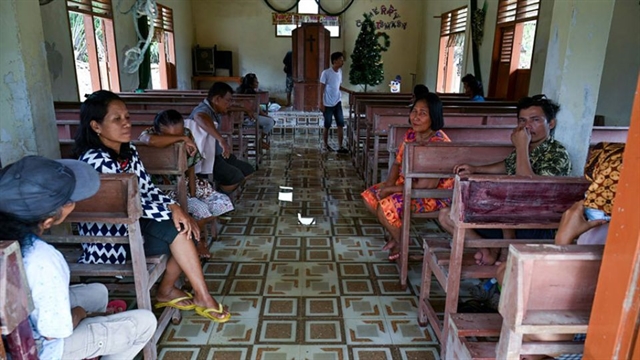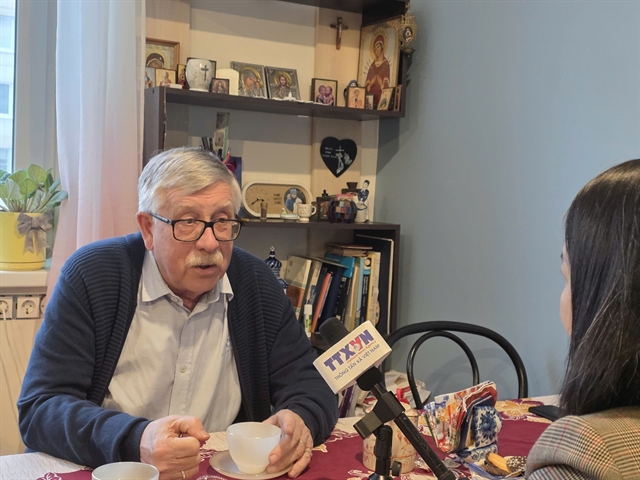 Society
Society

 |
| A high-end apartment building in Thủ Thiêm urban area in Thủ Đức city. — VNS Photo Bồ Xuân Hiệp |
HCM CITY — HCM City residents are facing significant challenges when it comes to affording homes in Việt Nam’s largest metropolis, according to a city survey.
The survey conducted by the HCM City Institute for Development Studies showed that most families can only cover 49 per cent to 68 per cent of the costs associated with buying a home over the next two years.
Many are specifically looking for two-bedroom apartments, typically around 65 square metres, with prices ranging from VNĐ2.3 billion to VNĐ8 billion (US$90,000 - 313,000).
But on average, households can afford just over half, which is about 53 per cent of the price, the survey noted.
For those interested in private houses, families often have their eyes set on one to three bedrooms, averaging 66 square metres, with budgets hovering around VNĐ2.76 billion.
While some are willing to stretch their budgets up to VNĐ15 billion, finding suitable properties within their financial reach is proving increasingly difficult.
Most affordable options are cropping up in suburban areas, far from the city centre.
In terms of land lots, the majority (over 80 per cent) are looking to buy in the inner city, where the average price for a plot is VNĐ1.74 billion, of which many families can only afford about 68 per cent of the value.
The survey emphasises the growing gap between the dream of homeownership and what many can realistically afford.
The survey revealed that nearly all city residents (99 per cent) aspire to own an apartment or private home, with about 80 per cent eyeing land lots and nearly 20 per cent considering plots in neighbouring provinces.
Another survey from real estate website Batdongsan.com indicated that people in their 30s would need around 25.8 years of income to afford a VNĐ3 billion apartment in 2024 (assuming stable housing prices and a 4.5 per cent interest rate).
Currently, the average monthly income for Vietnamese workers stands at around VNĐ7.6 million, growing at an annual rate of about 7 per cent.
To buy a 55-60 square metre apartment, a household would need to save for 21 to 23 years of total income, a figure that could double if they set aside 50 per cent of their earnings after expenses.
Dr. Cấn Văn Lức, a financial expert from the Bank for Investment and Development of Vietnam (BIDV), said young people in other countries typically save for 10 to 15 years for a home.
But in Việt Nam, that timeline can stretch to 25 years, often spanning an entire career, he added.
To meet the surging demand for housing, the HCM City Institute for Development Studies estimates that over 500,000 new housing units are needed by 2030, including 457,000 private homes and over 59,000 apartments.
According to the Department of Construction, only 31 commercial housing projects were active in the first 11 months of this year, delivering just over 31,000 units, which is about one-third of the output from previous years.
Currently, only four projects are available for sale, totaling 1,611 units at an average price of VNĐ9.4 billion each.
A recent report from the HCM City Real Estate Association indicated that newly launched apartments now average VNĐ55 million per square metre, with a standard two-bedroom unit (65 square metres) nearing VNĐ4 billion, including taxes and fees.
Finding apartments priced to be under VNĐ3 billion is becoming increasingly rare, with those below VNĐ2 billion nearly non-existent, according to the report.
Experts predicted housing prices will continue to rise due to increasing land use fees and project costs, further straining affordability.
In response, the city has set a goal of building 70,000 social housing units by 2030 to address the urgent demand for affordable housing.
Currently, 10 social housing projects are underway in the city; only six of them have been completed, resulting in nearly 6,000 housing units so far.
As the dream of homeownership slips further out ofreach for many, experts have called for more effective and affordable housing solutions in the city. — VNS




